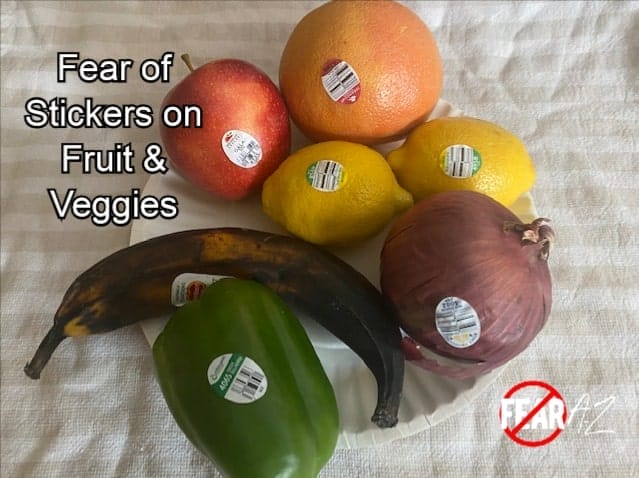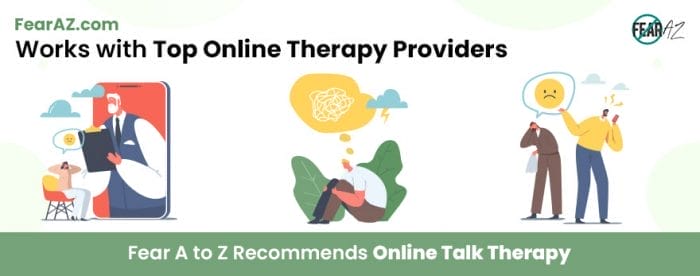Share This Article
How Common Is Pittakionophobia
Unlike your friends who love to collect paper products, do you see yourself escaping from the sight of sticky notes and labels?
Does the mere mention of sticky notes and stickers make you feel dizzy? Does the thought of labels put you in a state of distress? Do you avoid going to the supermarket because there are food tags everywhere? Do you see those little stickers on fruit and vegetables and feel disgusted or bothered?
You may be suffering from pittakionophobia, the irrational fear of sticky notes and labels.
Read on to learn what causes pittakionophobia, its symptoms, treatment options, and more.

Some Things to Know about Pittakionophobia
Do you remember a time when someone asked you to pick an object, but you couldn’t? It could have been something as harmless as an apple or a notebook, but you were unable to do it because it had a sticker on it.
You may have felt repulsed or anxious and tried everything to escape the situation.
You may belong to that small group of people that suffers from pittakionophobia. This is a rare phobia that invokes a fearful reaction toward stickers and labels.
Pittakionophobia Meaning
Pronounced pit-ak-ee-ono-phobia, this phobia is a combination of two words—pittakion and phobia. Pittakion is a Greek word that stands for tickets or labels. Phobia means an irrational fear or aversion toward an object. So, together, the term stands for an irrational fear toward sticky notes, tags, and stickers.
How Rare Is Pittakionophobia?
The fear of stickers and labels is a rare phobia. It may be that those who suffer from it refrain from acknowledging it. They may feel the fear sounds too silly to be considered a valid fear or phobia. They may feel ashamed to accept it.
What Causes Pittakionophobia?
The most common reason for pittakionophobia is a past traumatic experience. Anyone who has had a distressing encounter with sticky labels in the past may get anxious when they come across stickers later in life.
Subconsciously, they have linked stickers and labels with fear, anxiety, or danger. This experience may have occurred during childhood, adolescence, or near adulthood.
The experience may include direct involvement with the sticker. The sticker may have stuck to the person on a part of their body. Or they may have observed someone else having a negative experience with stickers and labels.
How Pittakionophobia Can Affect You
People who suffer from pittakionophobia may get anxious when they see a label stuck on an object. Or they may be fearful of the stickiness of the label. The way this phobia feels varies from person to person.

As with any other fear, dealing with pittakionophobia affects your regular routine. For example, a trip to the supermarket may seem like a trip into the jaws of death. Understandably so, because you’re likely to locate labels on products in every nook and cranny of the market.
With pittakionophobia your emotions are not in your control. You may feel anxious, furious, or uneasy near labels or products with stickers on them.
Symptoms of Pittakionophobia
The symptoms of pittakionophobia vary. They depend on the severity of the situation that involves you and your object of fear.
Those struggling with pittakionophobia may experience some of the following symptoms:
Mental/Emotional Symptoms
- Extreme anxiety
- The urge and need to escape from the situation involving stickers
- Lack of concentration and focus
- Feeling stressed, detached, or demotivated
- Panic attacks and tension
- No physical and mental control over the body
- Lack of motivation to perform at work and low productivity levels
Physical Symptoms
- Shortness of breath
- Dizziness and feeling lightheaded
- Sweating and heart palpitations
- Increase in heart rate
- Trembling or shaking
- Upset stomach and nausea
- Chills and abnormal sweating
- Rapid changes in the digestive system
How Do You Deal with Pittakionophobia?
You can deal with and overcome your worst fears with practice and diligence. Although pittakionophobia is not as common as other fears, it requires the same attention.
The first step is to own up to your fears. The quicker you do that, the more in control of your fears you will be. On the other hand, the more you avoid your fears, the longer you delay recovery.
It’s common for people struggling with a fear of sticky notes or labels to feel panicky and anxious. If you’re stuck in a situation like this, take a break and get a breather. Try to meditate, read a book, or listen to soothing music to put your mind at rest.

Pittakionophobia Treatments
You can seek one of many available treatments to overcome pittakionophobia.
Advanced transformational hypnotherapy is one option for treating this phobia. Through this, you can discover the origin of your fears. Once you find the origin, the next step is to remove the incorrect belief or fear that has linked stickers and labels to anxiety.
Coping with Pittakionophobia
Is your fear getting in the way of your goals? If you seek a peaceful life free of fear, try the following steps:
Acknowledge the Fear
Work to acknowledge, accept, and embrace your fear. Understand your fear before you try to overcome it. Expose yourself to the object of your fear—in this case sticky notes and labels—every chance you get so that you have a better shot at overcoming your fear.
Creating a Plan
Create a plan and a schedule that includes different ways to practice dealing with the fear. This can consist of meditation, yoga, a day out with friends, or anything that puts your mind at peace.
Learn about Your Fears
A fear such as pittakionophobia is rare and may be new to most. So, on the off chance you’re dealing with it, make sure to educate yourself about the fear as much as possible. Try to gather as much information as you can to make a sensible decision on how to treat or manage it.
Final Thoughts
Fear can be unnerving. Especially something as rare as pittakionophobia. However, try not to lose hope or give up on trying to overcome it. It may be hard to come face to face with your fears. But the more you do it, the more you will condition your brain to be less fearful of it.
The best thing you can do for yourself is seek help. It could be a friend, a teacher, your parents, or better—a professional therapist. Get in touch with anyone you feel comfortable with and share your fears. In no time, you’ll be hanging out in the produce aisle again.




